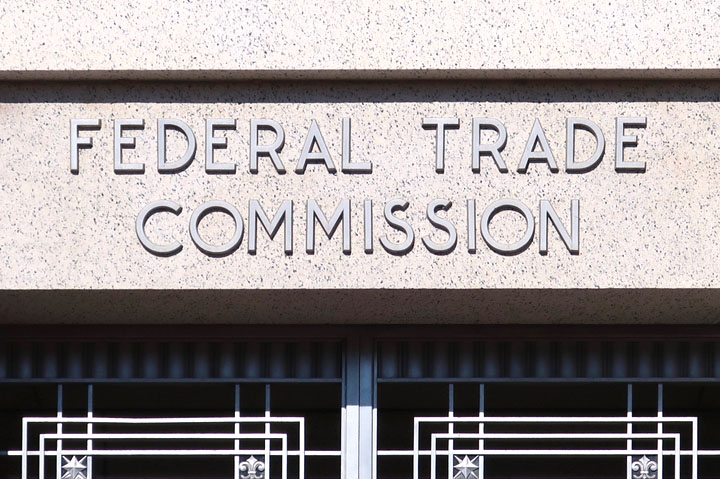News September 06, 2023
FTC Orders Clothing Accessories Companies To Pay More Than $190K for False Made-in-the-USA Claims
Customers must also be notified. The case has takeaways for promo firms that wish to avoid running afoul of the Federal Trade Commission.
The Federal Trade Commission (FTC) has ordered Thomas Bates and clothing accessories companies he owns in Massachusetts and New Hampshire to pay $191,481 as part of a judgement for falsely marketing and labeling products as Made in the USA.

The FTC finalized the order in late August against Bates and the companies – Chaucer Accessories, Bates Accessories and Bates Retail Group.
“‘Made in USA’ means what it says,” said Samuel Levine, director of the FTC’s Bureau of Consumer Protection. “Falsely labeling products as ‘Made in USA’ hurts consumers and competition, and the FTC will continue to aggressively enforce the law to stop deceptive claims and hold violators accountable.”
The Case
According to an FTC complaint, the companies are jointly operated and have been in business for more than 40 years, offering leather and fabric belts, bags and wallets, as well as shoes.
Products were advertised as being “Made in USA” or “Handcrafted in USA” in marketing and sales materials, including company/brand websites, catalogs and third-party seller marketplaces like amazon.com. The companies sold certain belts labeled as “Made in USA from Global Materials.”
In spite of those claims, the FTC determined that the companies sold certain products – in “numerous instances” – that were wholly imported or incorporated significant imported components. The FTC also determined that the belts labeled “Made in USA from Global Materials” consisted of belt straps imported from Taiwan with buckles attached in the U.S.
The Final Order
Bates and the companies acknowledged the wrongdoing in agreeing to an FTC order/judgement. Beyond paying the more than $191,000, Bates and the companies must also:
• Refrain from making any unqualified U.S.-origin claims for any product, unless they can show that the product’s final assembly or processing – and all significant processing – takes place in the U.S., and that all or virtually all ingredients or components of the product are made and sourced in the U.S.
• Include in any qualified Made-in-USA claims a clear and conspicuous disclosure about the extent to which the product contains foreign parts, ingredients or components, or processing.
“Don’t ignore the fact that the FTC required the defendants to notify all of their affected customers that they’d engaged in false advertising, which is probably not the best way to build customer trust.” Jeff Greenbaum, Frankfurt Kurnit Klein & Selz
• Ensure that when claiming a product is assembled in the U.S., that it is last substantially transformed in the U.S., its principal assembly takes place in the U.S. and U.S. assembly operations are substantial.
• Notify customers about the false claims through mailing or emailing. “Don’t ignore the fact that the FTC required the defendants to notify all of their affected customers that they’d engaged in false advertising, which is probably not the best way to build customer trust,” wrote advertising attorney Jeff Greenbaum, managing partner at New York City law firm Frankfurt Kurnit Klein & Selz, in a legal analysis of the case. “This isn’t the first time that the FTC has done this recently, and you should expect to see this requirement in more orders in the future.”
Serious About Enforcement
The FTC hasn’t been shy about enforcing its rules regarding U.S.-made claims in marketing and labeling, particularly since it started acting on new regulations related to assertions that a product is American-made in April 2022.
In August 2022, for instance, a Utah-based company that sells conservative-themed printed apparel had to pay a six-figure fine and notify customers that it lied about the where its products were produced after falsely stating its products were Made in America.
Lions Not Sheep and its owner were ordered to pay $211,335 for removing clothing tags and replacing them with phony Made-in-USA labels, according to the FTC.
What Promo Companies Should Know
As the Chaucer/Bates order alludes to, companies cannot claim that products are made in the United States unless they can show that the product’s final assembly or processing – and all significant processing – takes place here and that all or virtually all ingredients or components of the product are made and sourced here.
Companies can make qualified Made-in-USA claims, but they must include a prominent disclosure about the extent to which the product contains foreign parts, ingredients or components, or processing.
Just as with the Bates/Chaucer case specifically, to claim that a product is assembled in the United States, all companies must ensure that it is last-substantially transformed in the United States, its principal assembly takes place in the United States, and U.S. assembly operations are substantial.
In his legal analysis, attorney Greenbaum offered other key takeaways for marketers/advertisers based on the Bates/Chaucer case in particular.
For instance, Greenbaum noted that the “FTC is also continuing to more aggressively seek damages from advertisers who don’t follow the law. The FTC got nearly $200K from the advertiser here, and you should expect that there are going to be fewer cases where all that the FTC wants from the advertiser is that it promises not to do it again.”
It was also notable, wrote Greenbaum, that the FTC came after the owner/president of the company, too. “This should serve as yet another warning to corporate executives that the FTC may, in appropriate circumstances, hold them responsible for false advertising by the companies they work for,” he said.
When making a proper qualified U.S.-origin claim, it’s essential to ensure that the qualification is instantly and unequivocally evident, Greenbaum asserted. “It’s pretty clear from the order in this case that the FTC doesn’t want that qualification to be in fine print,” he said. “Instead, the FTC wants the qualifying language to appear ‘immediately adjacent to the representation.’”
